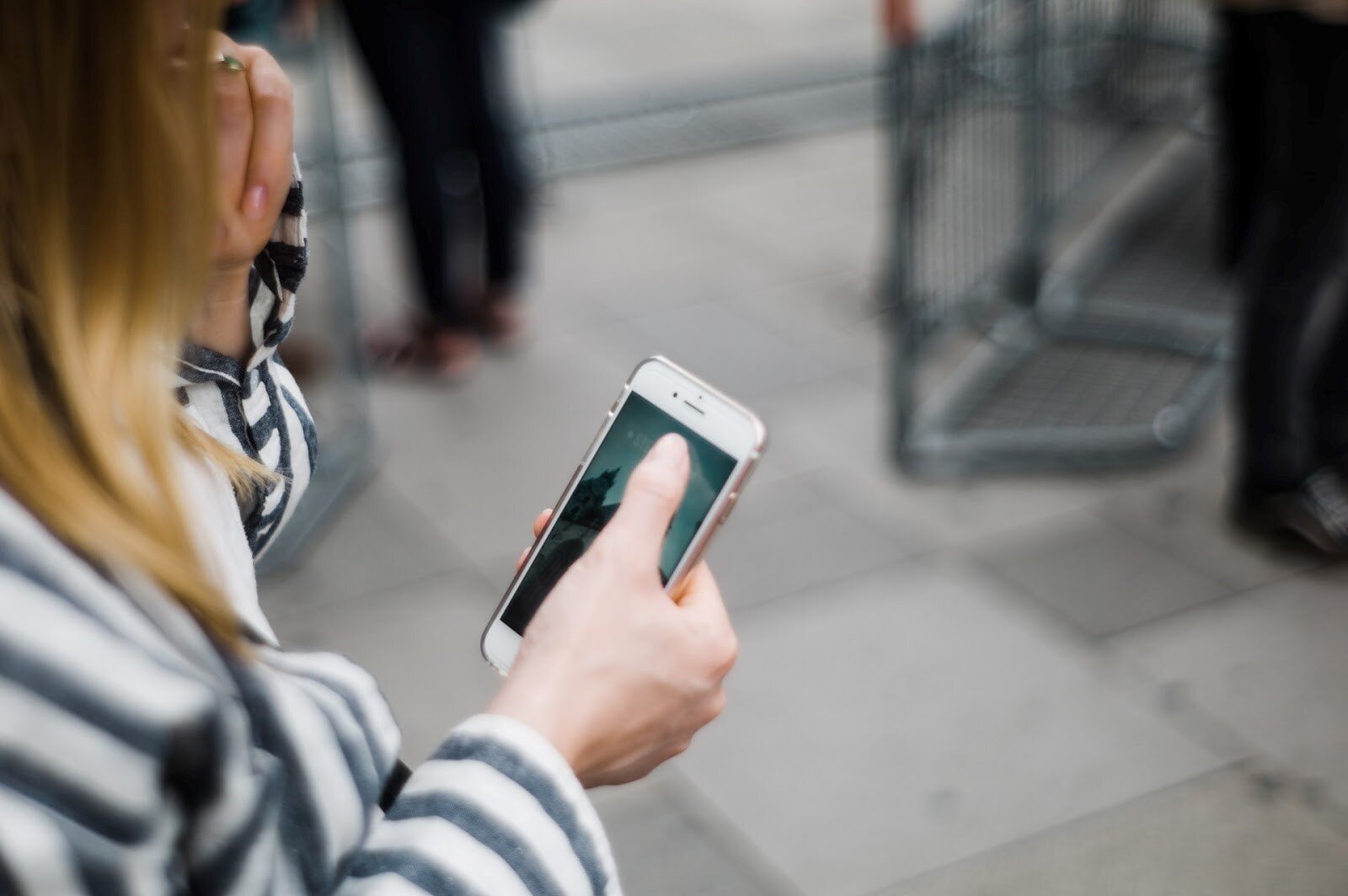Digital Aging: What It Is and How to Prevent It
How much time do you spend in front of a screen?
Well, a study done in America might help us discover the answer to this question. The study reveals that the typical person spends four hours and 30 minutes watching TV, four hours and 33 minutes looking at a smartphone, over three hours using a gaming device, and nearly five hours on a laptop.
This amounts to a total of 17 hours per day spent in front of technological devices. So it comes as no surprise that this excessive exposure to digital devices is harmfully impacting our health.
Most of us would think that our eyes are the ones that suffer the most and that’s definitely true. We’ve all experienced digital eye strain, which usually comes with irritated and dry eyes, migraines, and an inability to focus.
But the eyes are not the only ones that are affected by digital devices. In fact, the blue light coming from digital screens also has a big impact on your skin.
You might be asking yourself, how does blue light affect my skin? Let’s find out:
What Is Digital Aging?
As the name suggests, digital aging is the premature aging of the skin caused by blue light. But why does long exposure to blue light accelerate the aging process of your skin?
The Impact of Artificial Blue Light
The main natural source of blue light is the sun, but we managed to create artificial blue light that can be used indoors. Within the household, the blue light comes from TVs, smartphones, tablets, laptops, etc.
Now, we all know by now that a long exposure to the sun is not at all good for the skin. Of course, the sun is an important source of vitamin D, but staying in the sun for long periods of time can cause:
Premature aging
Fine lines and wrinkles
Lower immunity
Pigmentation and discoloration
Skin cancer
Then, if having access to too much natural blue light can trigger these effects, it’s obvious that long exposures to artificial blue light will do quite a lot of damage as well. Just to get an idea of the consequences of artificial blue light, a study shows that 30 hours of exposure to blue light from smartphone or laptop screens can increase the inflammation level in skin cells by 40%.
Not only that, but blue light from digital devices exposes skin to oxidative stress (or free radicals). These free radicals can damage collagen and lead to obvious signs of aging.
Blue Light Affects the Circadian Rhythm
Blue light also disturbs the circadian rhythm, which practically governs our sleeping patterns. The presence of blue light tricks the brain into believing that it’s daylight. And during the day, our skin fights to protect itself.
Once nighttime comes and we are asleep, our skin goes into recovery mode, which is a time of intense regeneration and repair. This is when the skin absorbs topical treatments best, cell production increases, and DNA repair is boosted.
If you don’t get enough sleep, then your skin’s recovery processes will be slowed down. And obviously, melatonin will not be produced as efficiently if the body comes into contact with a constant source of blue light.
How Can You Prevent Digital Aging?
The best thing to avoid digital aging would be to reduce screen time. But this is not exactly a possibility if you are working in an office and have to be in front of a computer for at least eight hours a day.
Luckily, there are a few methods by which you can prevent digital aging. Let’s start with the easier things that you can do.
Don’t use your digital device one hour before bed. Try doing other activities, like doing your skincare, taking care of some chores, or reading a book.
When it comes to your skincare routine, you should try the following:
Products that are high in antioxidants (vitamin C). These antioxidants prevent oxidative stress from damaging the collagen within the skin.
Products with vitamin C, E, and peptides to help with skin inflammations
Collagen boosting/generation
Rich moisturizers
All in all, having a good skincare routine can really save you from digital aging, so it’s recommended that you Contact us to see what fits your skin.
Bottom Line
Finding products that work for your skin might not always be easy. Everybody’s skin is different, which means that what works for somebody, might not work for you. This is why getting in touch with a professional can help you figure out your skin condition and what skincare routine would suit you best.
If you want to get to know your skin, let one of our professionals help you. Contact us today and let’s see how we can make your skin shine.
PERMISSION TO REPRINT: You may use any items from this article in your print, blog, magazine or electronic newsletter. But in order to do so, you must include the following paragraph, including a link to www.thebeautyjourney.com
"Information is courtesy of www.thebeautyjourney.com, a website with skin care tips, products, treatments and advice from skin care expert and licensed esthetician, Kristina Trinh."
